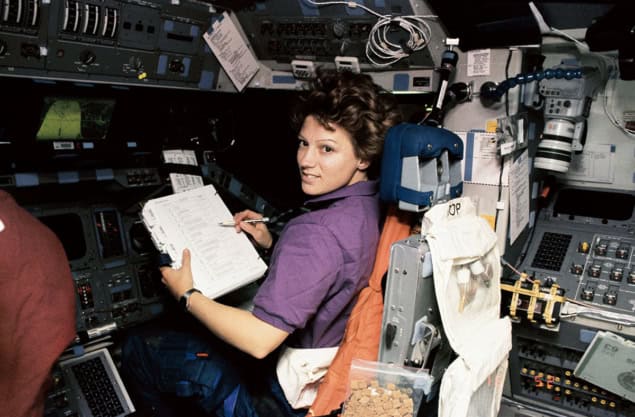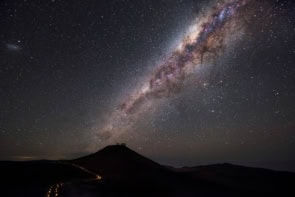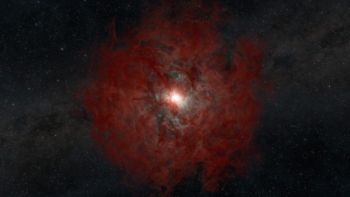Andrew Glester reviews the film Spacewoman directed by Hannah Berryman

“What makes a good astronaut?” asks director Hannah Berryman in the opening scene of Spacewoman. It’s a question few can answer better than Eileen Collins. As the first woman to pilot and command a NASA Space Shuttle, her career was marked by historic milestones, extraordinary challenges and personal sacrifices. Collins looks down the lens of the camera and, as she pauses for thought, we cut to footage of her being suited up in astronaut gear for the third time. “I would say…a person who is not prone to panicking.”
In Spacewoman, Berryman crafts a thoughtful, emotionally resonant documentary that traces Collins’s life from a determined young girl in Elmira, New York, to a spaceflight pioneer.
The film’s strength lies in its compelling balance of personal narrative and technical achievement. Through intimate interviews with Collins, her family and former colleagues, alongside a wealth of archival footage, Spacewoman paints a vivid portrait of a woman whose journey was anything but straightforward. From growing up in a working-class family affected by her parents’ divorce and Hurricane Agnes’s destruction, to excelling in the male-dominated world of aviation and space exploration, Collins’s resilience shines through.
Berryman wisely centres the film on the four key missions that defined Collins’s time at NASA. While this approach necessitates a brisk overview of her early military career, it allows for an in-depth exploration of the stakes, risks and triumphs of spaceflight. Collins’s pioneering 1995 mission, STS-63, saw her pilot the Space Shuttle Discovery in the first rendezvous with the Russian space station Mir, a mission fraught with political and technical challenges. The archival footage from this and subsequent missions provides gripping, edge-of-your-seat moments that demonstrate both the precision and unpredictability of space travel.
Perhaps Spacewoman’s most affecting thread is its examination of how Collins’s career intersected with her family life. Her daughter, Bridget, born shortly after her first mission, offers a poignant perspective on growing up with a mother whose job carried life-threatening risks. In one of the film’s most emotionally charged scenes, Collins recounts explaining the Challenger disaster to a young Bridget. Despite her mother’s assurances that NASA had learned from the tragedy, the subsequent Columbia disaster two weeks later underscores the constant shadow of danger inherent in space exploration.
These deeply personal reflections elevate Spacewoman beyond a straightforward biographical documentary. Collins’s son Luke, though younger and less directly affected by his mother’s missions, also shares touching memories, offering a fuller picture of a family shaped by space exploration’s highs and lows. Berryman’s thoughtful editing intertwines these recollections with historic footage, making the stakes feel immediate and profoundly human.
The film’s tension peaks during Collins’s final mission, STS-114, the first “return to flight” after Columbia. As the mission teeters on the brink of disaster due to familiar technical issues, Berryman builds a heart-pounding narrative, even for viewers unfamiliar with the complexities of spaceflight. Without getting bogged down in technical jargon, she captures the intense pressure of a mission fraught with tension – for those on Earth, at least.
Berryman’s previous films include Miss World 1970: Beauty Queens and Bedlam and Banned, the Mary Whitehouse Story. In a recent episode of the Physics World Stories podcast, she told me that she was inspired to make the film after reading Collins’s autobiography Through the Glass Ceiling to the Stars. “It was so personal,” she said, “it took me into space and I thought maybe we could do that with the viewer.” Collins herself joined us for that podcast episode and I found her to be that same calm, centred, thoughtful person we see in the film and who NASA clearly very carefully chose to command such an important mission.
Spacewoman isn’t just about near-misses and peril. It also celebrates moments of wonder: Collins describing her first sunrise from space or recalling the chocolate shuttles she brought as gifts for the Mir cosmonauts. These light-hearted anecdotes reveal her deep appreciation for the unique experience of being an astronaut. On the podcast, I asked Collins what one lesson she would bring from space to life on Earth. After her customary moment’s pause for thought, she replied “Reading books about science fiction is very important.” She was a fan of science fiction in her younger years , which enabled her to dream of the future that she realized at NASA and in space. But, she told me, these days she also reads about real science of the future (she was deep into a book on artificial intelligence when we spoke) and history too. Looking back at Collins’s history in space certainly holds lessons for us all.
Berryman’s directorial focus ultimately circles back to a profound question: how much risk is acceptable in the pursuit of human progress? Spacewoman suggests that those committed to something greater than themselves are willing to risk everything. Collins’s career embodies this ethos, defined by an unshakeable resolve, even in the face of overwhelming odds.
In the film’s closing moments, we see Collins speaking to a wide-eyed girl at a book signing. The voiceover from interviews talks of the women slated to be instrumental in humanity’s return to the Moon and future missions to Mars. If there’s one thing I would change about the film, it’s that the final word is given to someone other than Collins. The message is a fitting summation of her life and legacy, but I would like to have seen it delivered with her understated confidence of someone who has lived it. It’s a quibble though in a compelling film that I would recommend to anyone with an interest in space travel or the human experience here on Earth.
When someone as accomplished as Collins says that you need to work hard and practise, practise, practise it has a gravitas few others can muster. After all, she spent 10 years practising to fly the Space Shuttle – and got to do it for real twice. We see Collins speak directly to the wide-eyed girl in a flight suit as she signs her book and, as she does so, you can feel the words really hit home precisely because of who says them: “Reach for the stars. Don’t give up. Keep trying because you can do it.”
Spacewoman is more than a tribute to a trailblazer; it’s a testament to human perseverance, curiosity and courage. In Collins’s story, Berryman finds a gripping, deeply personal narrative that will resonate with audiences across the planet.
- Spacewoman premiered at DOC NYC in November 2024 and is scheduled for theatrical release in 2025. A Haviland Digital Film in association with Tigerlily Productions.



